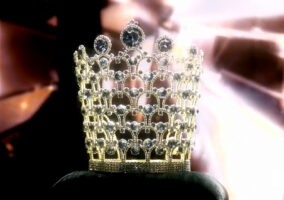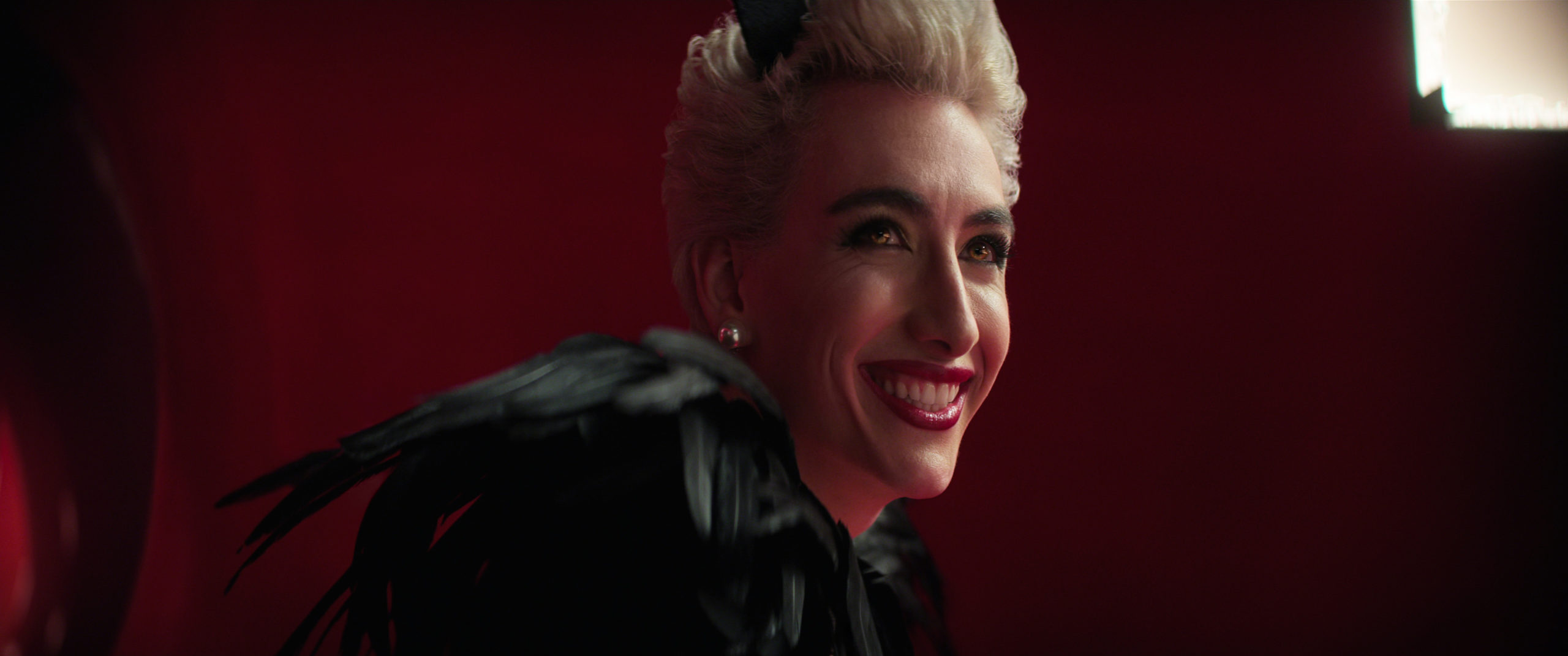
The Walker siblings are in the midst of learning a valuable lesson; namely that you don’t follow strange men who refuse to give their names across state lines to hotels. The Corinthian, having killed Fun Land, states his case to a not particularly shocked Rose. He tells her he can protect her from Morpheus and she figures out that he’s one of the missing nightmares. She warns him that Morpheus is probably watching her and he counters that the dream lord is not doing it out of love for her. He warns her that Dream is planning to kill her and because she’s furious with Dream for how he treated Lyta, she’s particularly susceptible to the Corinthian’s pitch. A little. Worried that the dream lord might steal her friend’s baby, and knowing that she’s clearly in danger at this hotel, she considers his offer. For the first time in a couple of episodes, people’s motivations and actions are starting to make a little more sense. He leaves his room card with her and tells her she can make up her mind about letting him in when he comes back.
Downstairs, a rapturous Nimrod introduces the Corinthian not just as a rock star among their kind, but something akin to a god or enlightened being of killing. The tacky ballroom full of killers quite literally worship him and it’s implied that the last century-plus of American serial killing is entire attributable to him. We kinda wish they’d hammered that aspect of Corinthian home a little more throughout the season. It’s possible that Boyd Holbrook’s sexy, laid-back take on the character made it difficult to convey the idea that, like most dreams, he’s as much an idea or symbol or a repeating series of patterns as he is a sentient being. The horror of The Corinthian isn’t his killing, it’s his ability to inspire, because that’s what dreams do. He tells the gathered killers that he sees them, recognizes them, and exalts them as explorers, hunters, and truth-seekers. Dream appears in the middle of Corinthian’s pep talk and calls him both his masterpiece and a disappointment. Corinthian pulls a knife and manages to draw the Dream King’s blood, telling a surprised Morpheus that Rose’s growing power is making him weaker. “She’s taking your place at the center of the dreaming.” It may not be the greatest plan in the world, but a lot of Corinthian’s actions in this arc now make a little more sense, even if they do always seem like they were doomed to fail, given the precariousness of mounting an attack in the middle of a serial killer’s convention. Rose and Jed find themselves stuck in the dreams of the killers. Dream and Corinthian take their argument there, with Dream imploring her to wake up and Corinthian telling her she can take control of all of it if she wants to. Dream explains to her that a vortex will eventually collapse all of the walls separating dreams, wiping out the entire population of the planet. Rose listens to the two dream beings argue over what she should do next when she opts for a little you-go-girl moment and takes control of the situation. “Because I’m not dreaming any more. Thanks to you too, I’m wide awake!” We could roll our eyes at this a little, but book Rose is often way too passive in the story, so we can see why the show creators would want to make her a little more active a figure – and a threat.
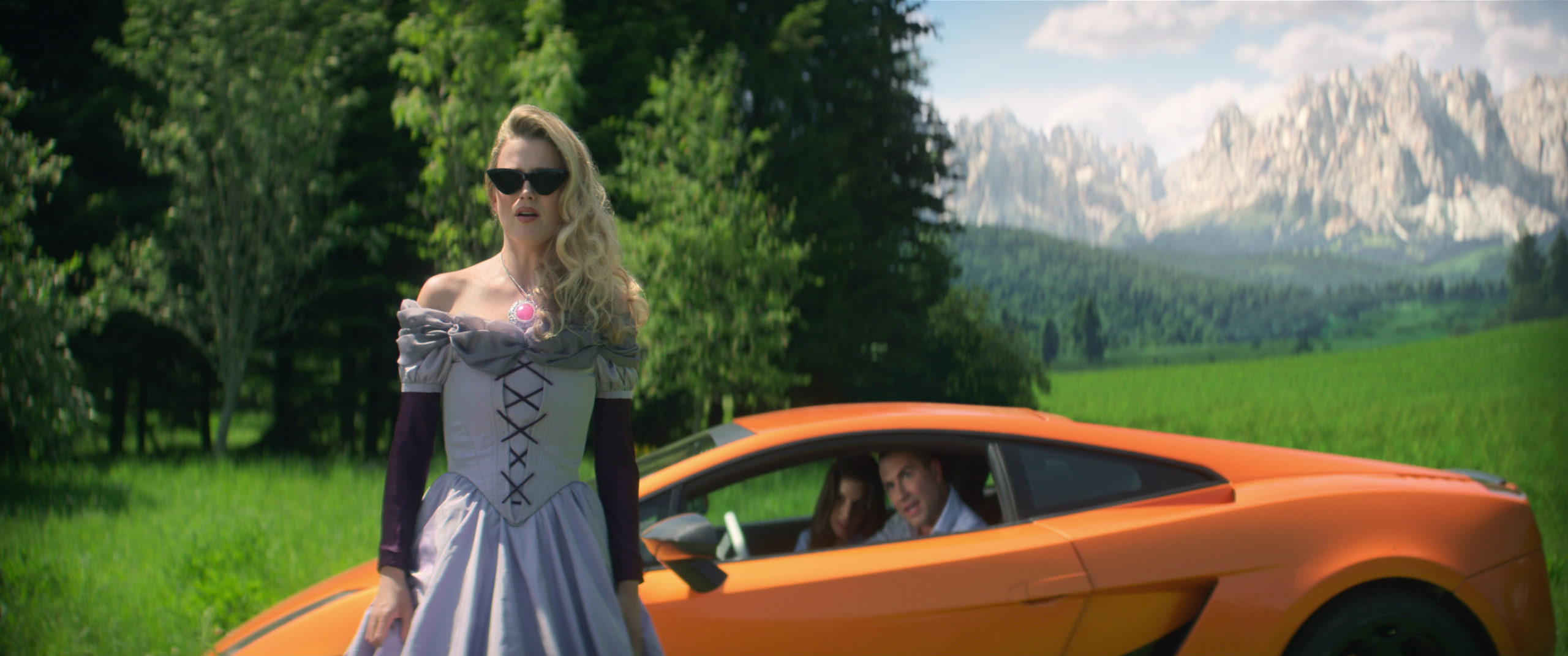
Meanwhile, Unity Kinkaid has been making plans with her solicitor to adopt Rose and Jed and bring them to live in London with her. He’s dubious that she can handle family life at her advanced age (which we figure to be about 118 years old), but she waves him off and tells him to be happy for her because she’s finally going to have a life. If you didn’t see flashing lights and hear alarm bells after she said that, you haven’t been paying attention.
Morph and Cor continue their bickerfest in a ballroom full of sleeping serial killers. Corinthian mocks Dream’s penchant for rules, which gives him the perfect opportunity to explain why. “I contain the entire collective unconscious,” he says indignantly. “Without my rules, it would consume me.” It doesn’t necessarily absolve him of every dickish thing he’s done, but it does explain his mindset rather effectively. Corinthian is near tears at the end (but we guess it’s more like spit) and basically pulls the “I’m only what you made me” approach, which Dream ruefully admits is true. He uncreates him, leaving a little Corinthian keychain fob behind as a souvenir. Getting the last word in, Dream calls him small and petty. He then turns on his flawed dream’s apostles and inflicts his full fury on them, leaving several of them to take their lives or turn themselves in immediately. Rose hightails it the hell out of Hell Hotel with Jed. Lyta calls her to tell her she’s in labor and at the hospital. The whole boarding house (except Gilbert, of course) is with her. Rose goes to see her and tells her everything that’s happened, admitting that she’s afraid to go to sleep that night for fear of being killed by the King of Dreams. Lyta, about to give birth to the baby the aforementioned king also promised to steal some day, urges her to take control of the situation. “When you go to sleep tonight, you have to find him and end this.” That night, Rose enters the dreams of all of her housemates, bringing them together until a literal vortex swallows them all up in a sequence that might have benefitted from better digital effects, but was effectively horrifying. It might have had more impact if this wasn’t the second time we’ve seen Rose walk through mostly the same dreams. The entire dreamscape collapses after swallowing all her friends and Dream tells her that he can repair the damage, but that he has to end this.
Unity finds herself dreaming and wandering the stacks of Lucienne’s library, looking for the book about the life she never got to lead. When Lucienne figures out that she’s Rose Walker’s great-grandmother, she evidently decides to tell her everything that’s been happening. This is quite the leap on Lucienne’s part, since we don’t think Morpheus would normally take kindly to a member of his household staff interfering in the dreams of humans. Gilbert intercedes on Rose’s behalf and offers up his life in exchange for hers, but Dream points out it won’t solve the problem of removing the vortex from the dreaming. Rose is surprised to see Gilbert in her dream and even more surprised to hear that he’s the missing Fiddler’s Green. We say “surprised,” because other characters acted as if this needed to be explained to her, not because Rose was visibly or noticeably surprised, of course. Fiddler’s Green is a place, not a person, and before he returns to his true form, he invited Rose to stay in the Dreaming after her death and wander his meadows, which sounds like a euphemism, but as we’ve noted before everything’s literal in this world. Gilbert offers his theory that the vortex exists to remind the dreams that they exist in service to the dreamers, not the other way around. It sounds nice and it was clearly inserted so that Dream’s later conversation with Desire could reference it, but it doesn’t make a whole lot of sense that this “reminder” of the importance of humans always has to be killed before getting too powerful.
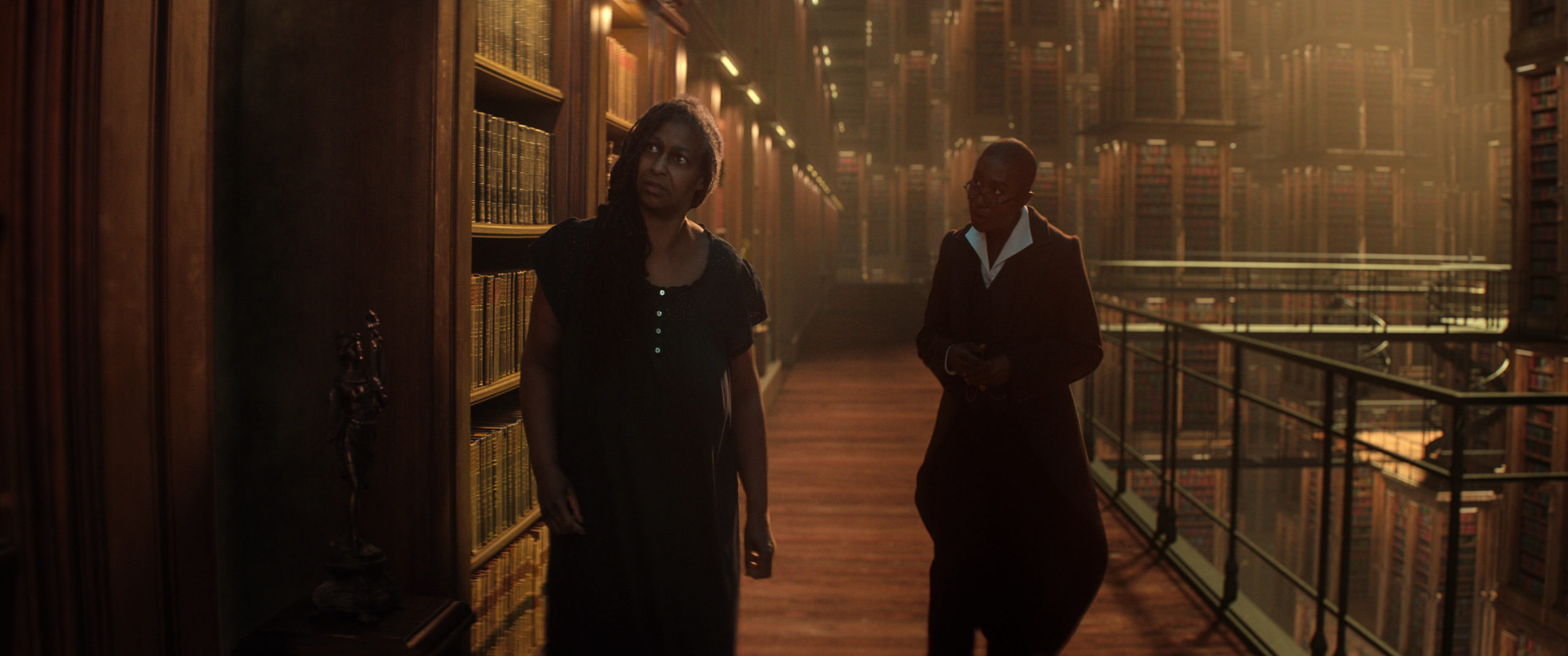
Just as Dream prepares to end Rose’s life, Unity shows up with Lucienne, announces that her research in the royal library has revealed that she was supposed to be the vortex of this age, and calls Morpheus “not too bright,” which we’ll give her, since she caught him in the act of trying to kill her great-granddaughter. Unity explains that because of her century-long sleep, the vortex traveled along her family line and landed on Rose. She has come to take it back from her, which is possible to do because they’re all in a dream, where anything is possible. Rose pulls a glowing gem in the shape of a heart out of her chest and hands it to Unity, who dies back in the waking world, destroying the vortex. The dream ghost of Unity mentions the golden-eyed man who fathered her child, which causes Dream and Lucienne to exchange knowing looks. Desire is Rose’s great-grandfather. Rose is upset that her great-grandmother has died to save her – or at least, other characters react to her as if she were. Dream calls her and Jed “children of the Endless” (without explaining why) and sends her back to the waking world, declaring that she and her brother have suffered enough. In the waking world, Lyta has had a baby boy and the boarding housemates get their storylines sort of wrapped up. Hal’s moving to New York, Chantal and Zelda are buying the house, and Barbie seems to be seeing an expiration date looming on her whole Ken deal.
Dream confronts Desire in their realm, which is a gigantic heart inside a gigantic reproduction of Desire themself. They purr and vamp while Dream confronts them about their latest failed scheme. They fathered a child in a vortex line hoping that Dream would be forced to “spill family blood, with all that would entail.” Put the biggest pin in your pincushion into that one. This scene is a direct lift from the comics, down to Desire’s kitty ears, poses, and Dream’s implied violence. It’s also one of the best scenes of the latter half of the season. Mason Alexander Park is amazing as Desire and the show really lights up whenever two or more of the Endless get together. The creators of this show seem to have the Endless and various other inhuman or enhanced human characters (including Johanna and Hob) down cold. We might quibble with a few interpretations here or there, but almost all of the exchanges and relationships among non-normals are the best part of the series by far. It’s the regular dreamers they haven’t quite nailed yet. Dream tells Desire that they are mistaken if they think humans exist as play things for the Endless. “We exist only because they know deep in their hearts that they exist.” This is a direct lift from Gilbert’s earlier sentiment about people, which just goes to show that even the King of Stories isn’t immune to stealing an idea or a bit of phrasing when it suits him. It all goes over Desire’s head (or more likely, they just don’t care), so Dream shifts into direct threat mode. “Mess with me or mine again and I shall forget that we are family.” As Dream storms out, Desire vows that next time, they’ll draw blood.
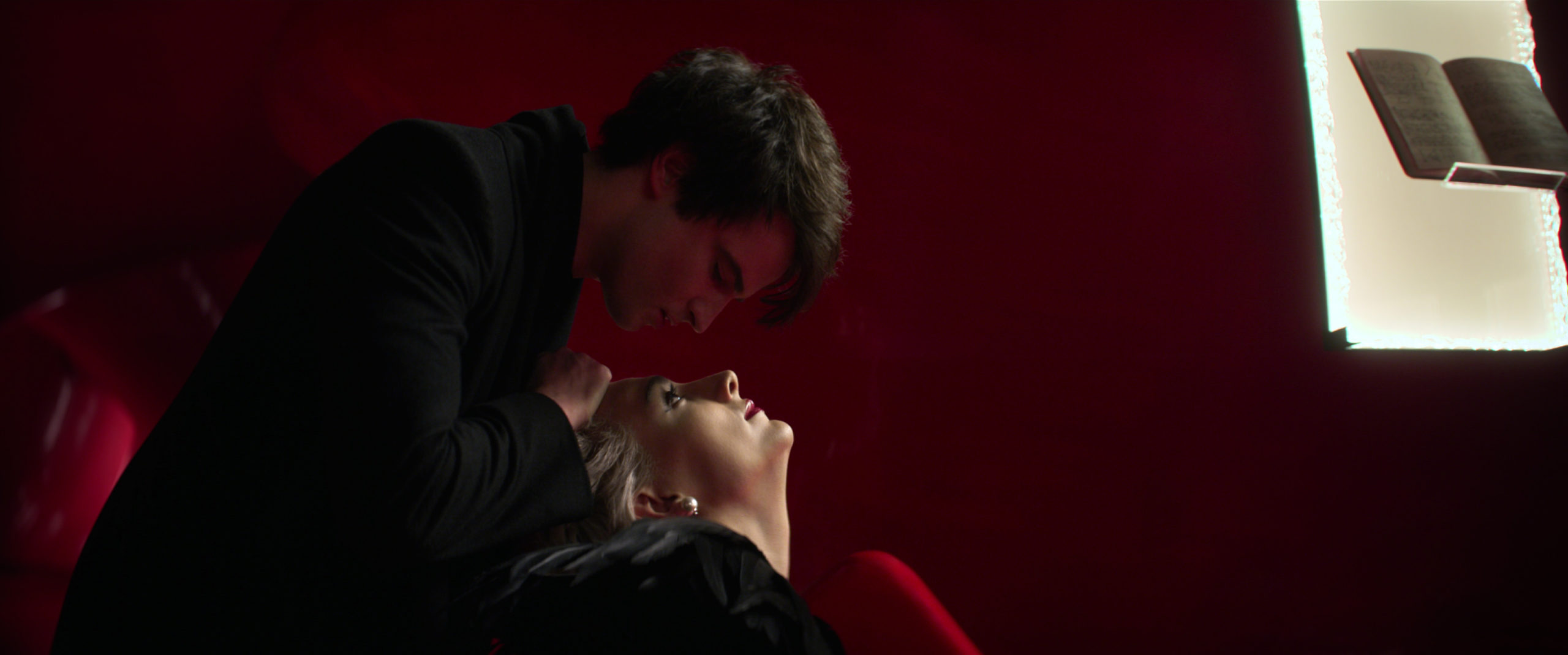
Back in the Dreaming, Morpheus is busy creating new nightmares when Lucienne interrupts him to show him the copy of Rose’s new book that appeared in the library. He asks her to look after things while he’s busy creating. It’s kind of a cute scene, but it also sets our teeth on edge because we think the show needs to resist the temptation to have these cute little “learned a valuable lesson” wrap-ups. We think they’ve done a really good job of interpreting Dream for television so far, but learning lessons and accepting change are the literal and exact opposite of what the character’s about. As we noted last episode, there seems to this impulse to turn him into a sort of semi-dark Willy Wonka or Doctor Who style of character and that really doesn’t track with the story trajectory he’s on. Having said that, the conclusion to the Gault storyline was lovely, even if it felt a little out of character for Morpheus. Dream calls it “a new age” and we’re hoping it’s just delusion on his part because yuk.
In Hell, season two is being set up. A bored and imperious Lucifer is forced to take a meeting with Azazel, who is one of the Lords of Hell and also the absolute worst special effect we’ve ever seen on any streaming series. It looked like something from Sabrina the Teenage Witch. The Lords propose that Lucifer undertake an expansion plan for Hell so that eventually, its borders encompass all of reality. Lucifer doesn’t seem to think much of the plan, but after he pushes her for a commitment, agrees to act. She did not, however, agree to act on his plan; a distinction he should’ve noticed. Whatever she decides to do next, Lucifer hates dream, hates her generals, seemingly hates her job, and the second-most powerful being in creation is ready to snap.
As we noted in our first recap of the series, it’s good. It’s occasionally even very good. When they get the stories and the characters right, it’s a dream come true (pun intended) for the long-time fans and an engrossing story in its own right. In so many ways, it’s exactly the Sandman adaptation so many of us have waited for. On the other hand, it’s extremely disconcerting how quickly and how hard the level of quality plummeted after that first arc. It’s not just that the acting was nowhere near on the same level as when people like Charles Dance, David Thewlis, Joely Richardson, Kirby Howell-Baptiste and Jenna Coleman were dominating the proceedings. It’s not just that the writing took a sharp turn downward, with plot developments and character turns that made almost no sense at all. What we find most disappointing about how the season progressed was just how flat and unstylish it became. The imagery from the first five episodes was so stark and dreamlike and in the final four episodes, it looked and sounded indistinguishable from a supernatural show on the CW. We’re really not sure as to why that drop in quality happened, but it’s clear that this material lives and dies on the skill of its actors. We can chalk some of this up to first-season wobbles and the difficulties of adapting what so many considered unadaptable for so long. Still, with the success of the series, we worry a bit that its creators will learn the wrong lessons from this season. The ghost of the adaptation of Neil Gaiman’s American Gods looms large. It started off strong and imaginative and got goofier and dumber over time. This material deserves more thoughtful consideration going forward. We can’t wait for season two.
Next: A surprise, star-studded BONUS episode: “A Dream of a Thousand Cats/Calliope“
Christian Louboutin x Idris and Sabrina Elba’s ‘Walk a Mile In My Shoes’ Collection Next Post:
EMILY THE CRIMINAL Star Aubrey Plaza in Magda Butrym on THE TONIGHT SHOW STARRING JIMMY FALLON
Please review our Community Guidelines before posting a comment. Thank you!


